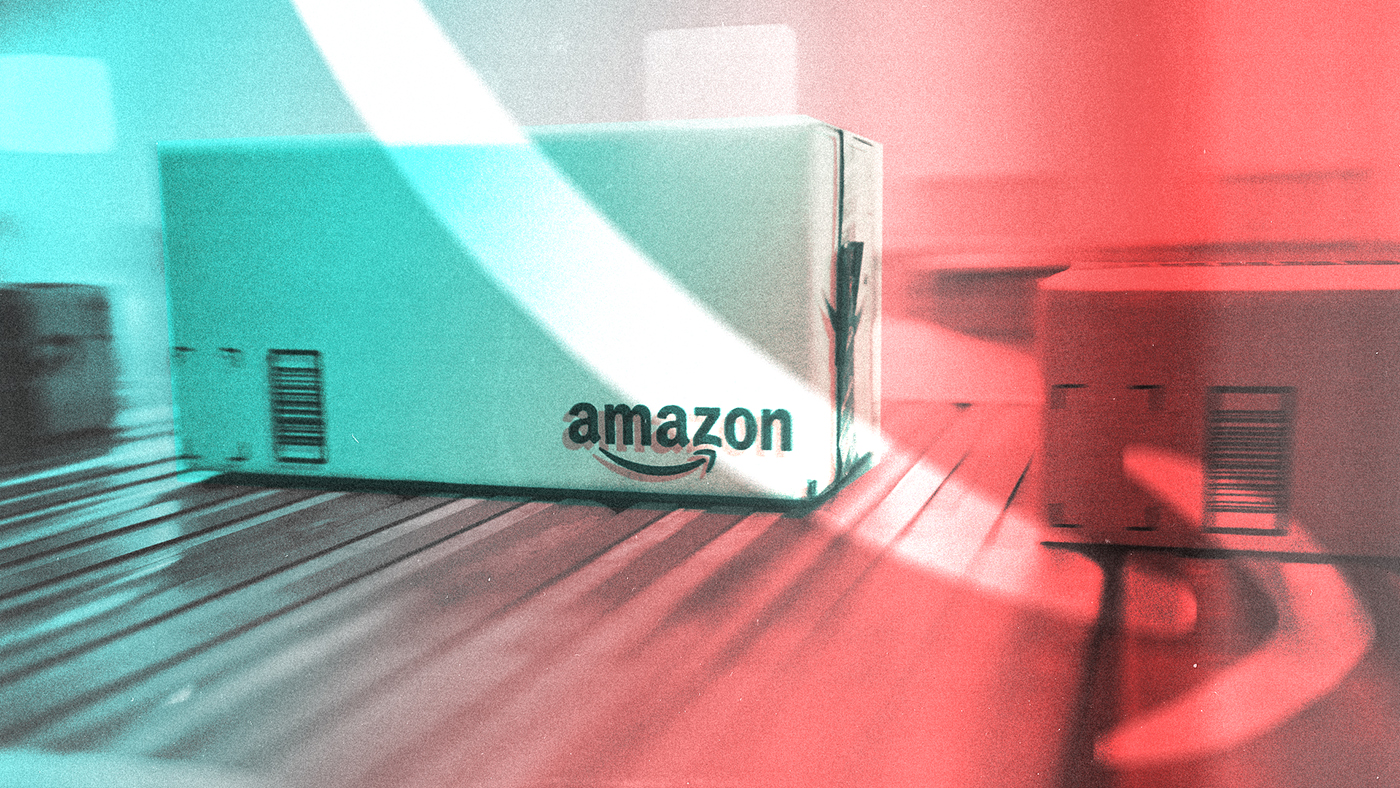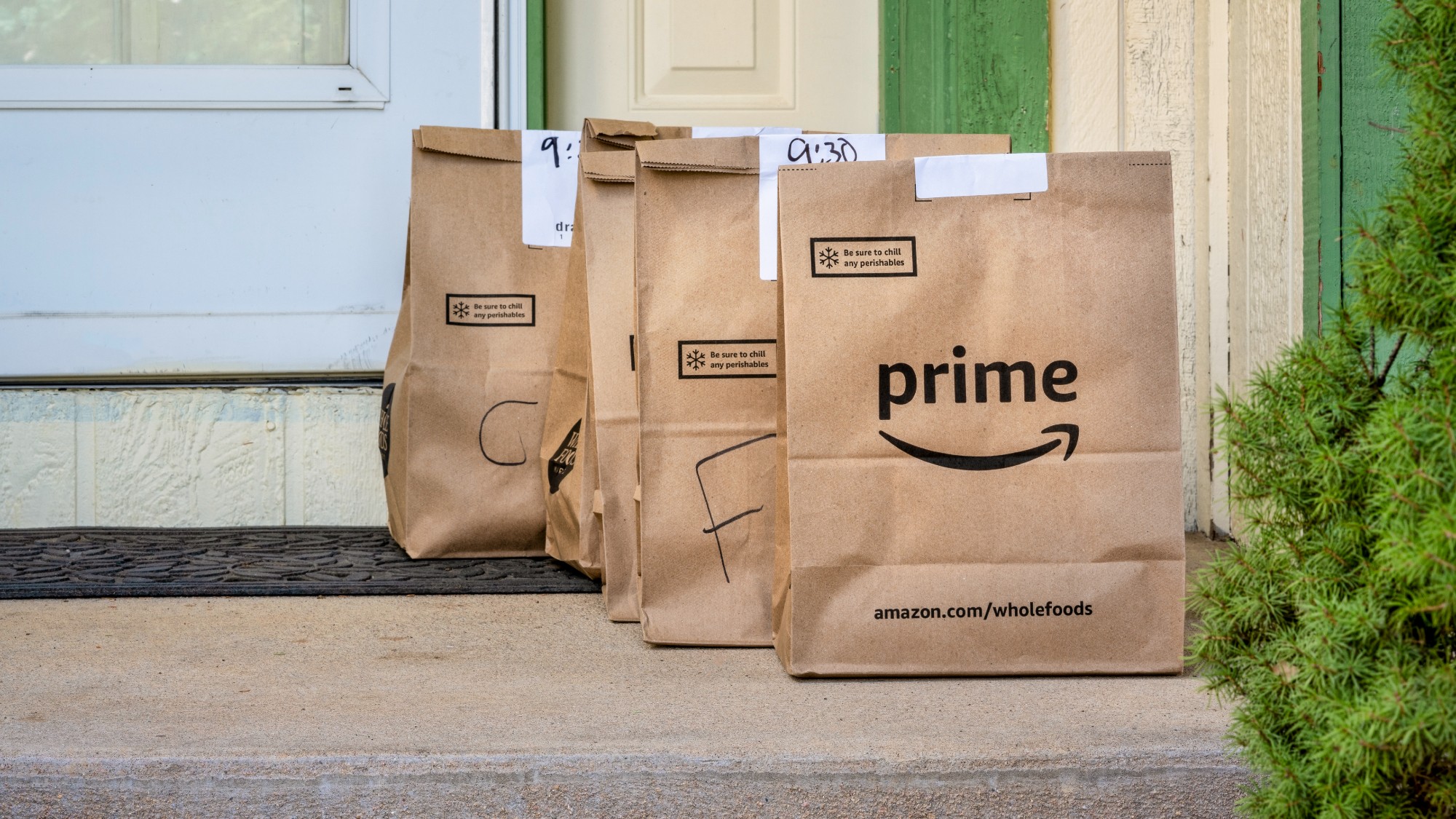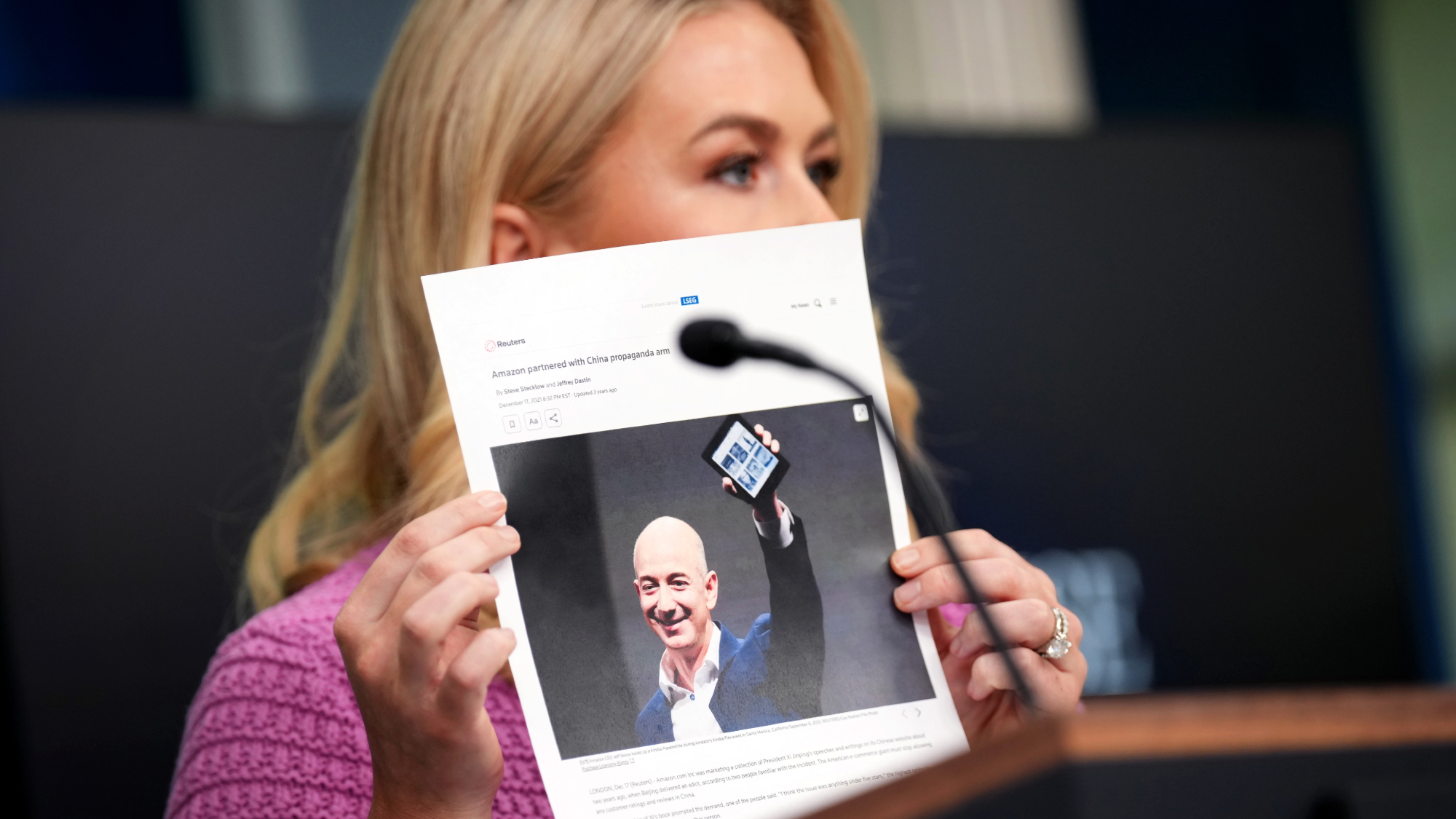Is it too hard to quit Amazon Prime?
The Federal Trade Commission thinks so. It's taking Amazon to court.


A free daily email with the biggest news stories of the day – and the best features from TheWeek.com
You are now subscribed
Your newsletter sign-up was successful
Have you tried and failed to unsubscribe from Amazon Prime? And if so, is that a violation of federal law? The Federal Trade Commission thinks so. The FTC is suing Amazon, Reuters reported, alleging the company makes it too difficult for customers to extract themselves from the subscription service.
Signing up for Prime is a straightforward task, usually taking a click or two. But the FTC says Amazon set up a "four-page, six-click, 15-option process to stop paying for the service," MarketWatch reported. If that seems a bit extreme, that's explicitly the point. Amazon officials reportedly called that process the Iliad Flow, named for the "epically long and complex masterwork" Greek poem. Customers who wanted to unsubscribe could only do so by using a desktop computer or calling the company's customer service line.
"Amazon tricked and trapped people into recurring subscriptions without their consent, not only frustrating users but also costing them significant money," said FTC Chair Lina Khan in a statement reported by The Verge. Amazon officials deny they broke the law. "The truth is that customers love Prime, and by design we make it clear and simple for customers to both sign up for or cancel their Prime membership," said a spokesperson.
The Week
Escape your echo chamber. Get the facts behind the news, plus analysis from multiple perspectives.

Sign up for The Week's Free Newsletters
From our morning news briefing to a weekly Good News Newsletter, get the best of The Week delivered directly to your inbox.
From our morning news briefing to a weekly Good News Newsletter, get the best of The Week delivered directly to your inbox.
What are the commentators saying?
The FTC's lawsuit tries to penalize for "minor and picky" efforts to retain customers, Elizabeth Nolan Brown wrote at Reason. "That may be mildly annoying to shoppers, but it's not deception or trickery." The suit is part of a broader effort under the Biden administration to bring about a change in antitrust law, away from prosecuting companies whose size harms consumer welfare and toward a mindset of penalizing bigness for bigness' sake. In reality, a six-click process for canceling Prime is not harmful to consumers. That idea is "so far removed from reality that only government bureaucrats with an ax to grind could make it with straight faces."
"Fortunately, the FTC under Khan doesn't feel the onus should be on consumers to outwit the manipulators," Dave Lee wrote for Bloomberg. The Amazon lawsuit is just the beginning. The agency has proposed a Negative Option Rule that would make it easier for customers to cancel services and warn them when an annual subscription fee is about to hit their bank account. It's right for the federal government to crack down on practices that confuse and trap customers. "In any context, preying on human fallibility is no way to run an honest business."
The Amazon lawsuit is the "first salvo of the upcoming war against the deceptive arm-twisting practices that have plagued online marketplaces," Jesus Diaz wrote for Fast Company. Lots of companies use practices known as "dark patterns," which try to wear out customers who try to cancel their subscriptions by putting them through a maze of loops and links. Those companies are now on notice. "This lawsuit is not just about Amazon but about setting a precedent, warning the industry that deceptive practices will not be tolerated"
What's next?
"This isn't the showdown that Washington had expected," The New York Times reported in its DealBook newsletter. That's because Khan became famous, before she joined the FTC, by arguing that regulators should use antitrust regulations to reduce Amazon's immense power in the online economy. (Amazon at one point asked for Khan's recusal in antitrust investigations.) The new lawsuit doesn't go quite that far, but the Federal Trade Commission may have more surprises in store. Some observers "speculate that a bigger battle with Amazon is a matter of when not if."
A free daily email with the biggest news stories of the day – and the best features from TheWeek.com
Other companies are already trying to make it easier to cancel subscriptions, The Wall Street Journal reported. That's partly out of fear of policymakers but also because it might be good business not to alienate customers with deliberately cumbersome processes. "Companies may get an extra month of revenue," said one expert. "But in the long run, they risk that you cancel and never come back to that service."
In an apparent coincidence, the FTC's lawsuit became public at almost the same moment Amazon announced this year's Prime Day. It will be July 11 and 12 for all Prime customers, willing and not-so-willing.
Joel Mathis is a writer with 30 years of newspaper and online journalism experience. His work also regularly appears in National Geographic and The Kansas City Star. His awards include best online commentary at the Online News Association and (twice) at the City and Regional Magazine Association.
-
 Crisis in Cuba: a ‘golden opportunity’ for Washington?
Crisis in Cuba: a ‘golden opportunity’ for Washington?Talking Point The Trump administration is applying the pressure, and with Latin America swinging to the right, Havana is becoming more ‘politically isolated’
-
 5 thoroughly redacted cartoons about Pam Bondi protecting predators
5 thoroughly redacted cartoons about Pam Bondi protecting predatorsCartoons Artists take on the real victim, types of protection, and more
-
 Palestine Action and the trouble with defining terrorism
Palestine Action and the trouble with defining terrorismIn the Spotlight The issues with proscribing the group ‘became apparent as soon as the police began putting it into practice’
-
 Is the job market frozen or faltering?
Is the job market frozen or faltering?Today's Big Question Layoffs raise alarms while young workers eye law school
-
 Is Amazon about to take over the grocery business?
Is Amazon about to take over the grocery business?Today's Big Question Expanded delivery will present a challenge to Walmart and Kroger
-
 Trump calls Amazon's Bezos over tariff display
Trump calls Amazon's Bezos over tariff displaySpeed Read The president was not happy with reports that Amazon would list the added cost from tariffs alongside product prices
-
 What's Jeff Bezos' net worth?
What's Jeff Bezos' net worth?In Depth The Amazon tycoon and third richest person in the world made his fortune pioneering online retail
-
 Amazon's 'James Bond' deal could mean a new future for 007
Amazon's 'James Bond' deal could mean a new future for 007In the Spotlight The franchise was previously owned by the Broccoli family
-
 Britain's new retail returns nightmare
Britain's new retail returns nightmareIn the Spotlight Gen Z influencers and a 'poopy diaper' have shown up fault-lines in the system
-
 Saks buys Neiman Marcus in $2.65B deal
Saks buys Neiman Marcus in $2.65B dealSpeed Read Following the merger of the two legacy retailers, the new entity will be called Saks Global
-
 Retail media is seeing a surge this year
Retail media is seeing a surge this yearThe Explainer Amazon now makes more money from advertising than Coca-Cola's global revenue
